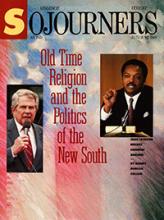When I heard the news of the cease-fire between the Nicaraguan government and the U.S.-backed contras, and when I saw the pictures of Sandinista and contra officials standing side by side singing Nicaragua's national anthem, I couldn't help thinking of the Nicaraguan women I met there four years ago.
I thought of the women in Pantasma whose husbands and fathers had been killed in a brutal contra attack, and how they had cried and begged for peace. I remembered 7-year-old Consuela, with whom I had picked coffee in the lush hills surrounding Matagalpa.
And I wondered if these women were celebrating the cease-fire. Would they be preparing extra tortillas for a simple feast? Would they, too, be singing the songs of their beautiful country? Or would they be too war-weary to do anything but utter a special prayer of thanks before falling asleep to dream of a silent night without gunfire?
Then, as always happens when I think of these women, I wondered if they still were alive. Had they lived to see their country's first day of peace in six years, or were they among the 50,000 Nicaraguans who have died in the tragic, U.S.-sponsored war?
Many U.S. peace activists have expressed reservations about the cease-fire, and such mixed feelings are understandable. The Reagan administration had, after all, succeeded in forcing the Nicaraguan government to sit down at the bargaining table with a small, terrorist group that has very little popular support. And this fragile cease-fire had been bought with an awful and deadly price. Furthermore, even as this is written, the U.S.-managed contras threaten to scuttle the hard-won agreement. Still, there is much about the cease-fire for which to be thankful.
Read the Full Article

